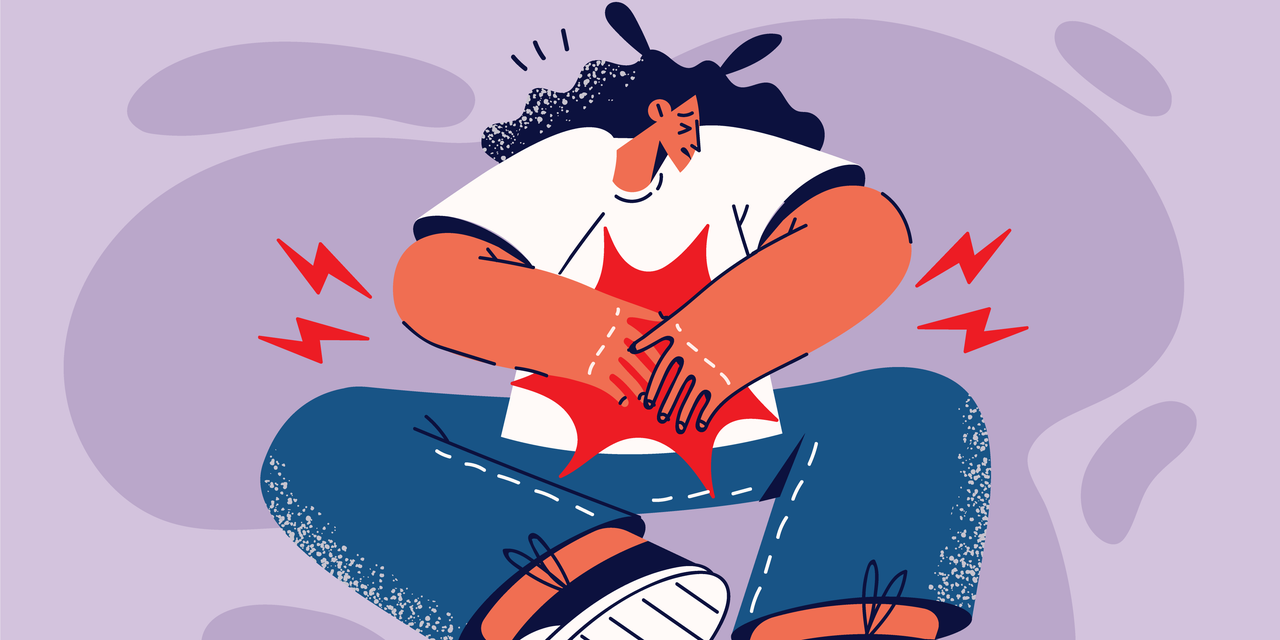[ad_1]
Whenever I’m worrying about meeting a work deadline or spiraling over some friendship drama, eating becomes a total afterthought. Sometimes it’s because my belly feels weirdly full (even if I haven’t eaten in hours), making my usual lunchtime egg-and-hot-sauce bagel suddenly unappetizing. Other times, my anxiety is so all-consuming that I get super nauseous.
There are a lot of ways stress can wreak havoc on your physical health, and while it hits the ol’ GI system particularly hard, the resulting symptoms are different for everyone. And that’s certainly true when it comes to hunger: “The impact of stress on appetite is very complex and varies by individual,” Christina Gentile, PsyD, board-certified clinical health psychologist specializing in digestive diseases at UCLA Health, tells SELF.
Some people, for instance, feel extra snacky when they’re anxious because cortisol (the “stress hormone”) can make you crave quick sources of energy (namely, carbs), she says. Others may lose their appetite altogether since other hormones your body releases under stress (like adrenaline and corticotropin-releasing hormone) can suppress hunger, research shows. “People may also have stress-reactive gastrointestinal symptoms, such as nausea, pain, or an upset stomach, which can make it physically challenging to eat,” Dr. Gentile adds.
It’s not the end of the world if you occasionally delay your breakfast or dinner until you’ve calmed down. But skipping meals can lead to mood changes, fatigue, and even more nausea. So how can you dig into that ham and cheese panini, say, when nothing (not even the smell of perfectly golden bread) is appealing? Dr. Gentile has three tips to help make sure you’re getting the nutrients you need—without making your tummy troubles worse.
1. Before you eat anything, calm your nerves with this quick breathing exercise.
The main reason short-term stress can be an appetite killer, according to Dr. Gentile: Unnerving situations (like an upcoming job interview or your first date in years) activate your sympathetic nervous system, which controls the “fight or flight” response and slows down digestion. To counter that, you can try diaphragmatic breathing, also known as deep or belly breathing, which activates your parasympathetic nervous system, and can help you shift into “rest and digest” mode.
Dr. Gentile likes this tactic because you can use it pretty much any time and anywhere, it only takes a few minutes, and it’s been scientifically shown to lower stress. All you have to do is sit or lie down, placing one hand on your stomach just below your ribs and the other on your chest. Then you simply inhale deeply through your nose and feel your belly push your hand out—without moving your chest—and exhale through closed lips (as if you’re whistling). Practicing this for five minutes or so should help your mind and gut chill out, she says.
2. Plan ahead by stocking up on ready-to-go, simple foods.
When I’m knee-deep in my tax returns or reeling from a tense argument with my partner, not only do I physically not feel like eating, but cooking dinner sounds like an unbearable chore. Rather than resigning myself to an empty stomach, though, Dr. Gentile suggests a smarter approach for these overwhelming moments: keeping convenient and relatively plain foods on standby.
[ad_2]
Source link
